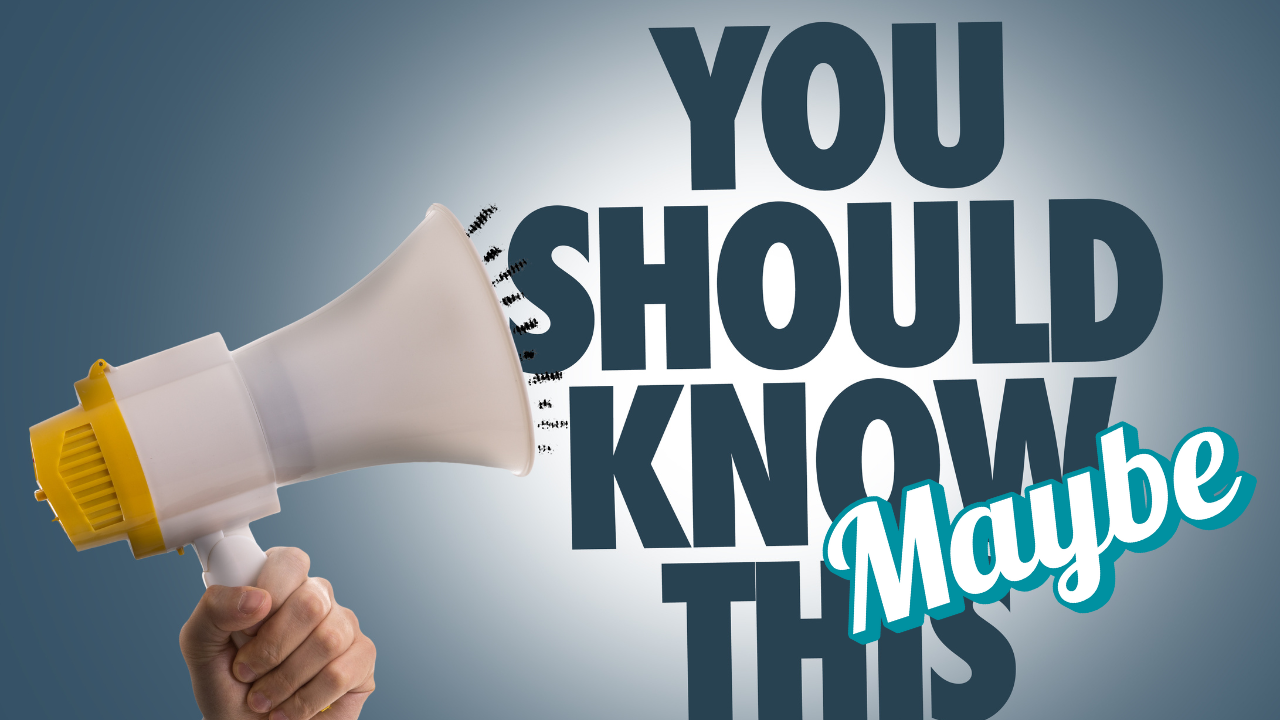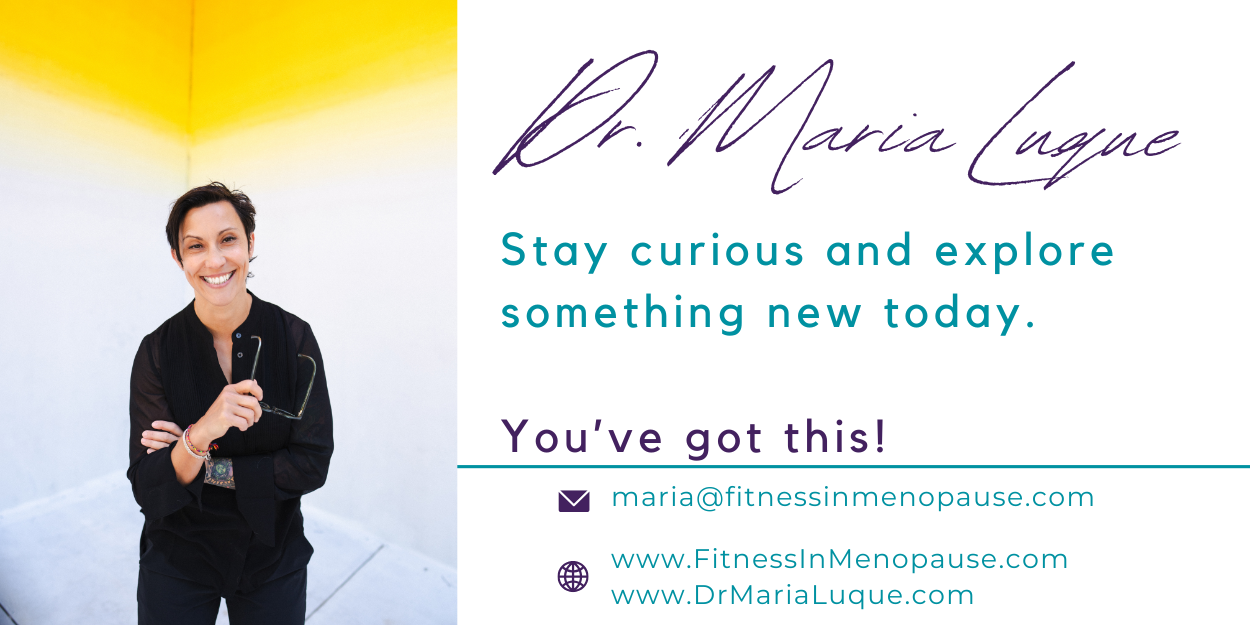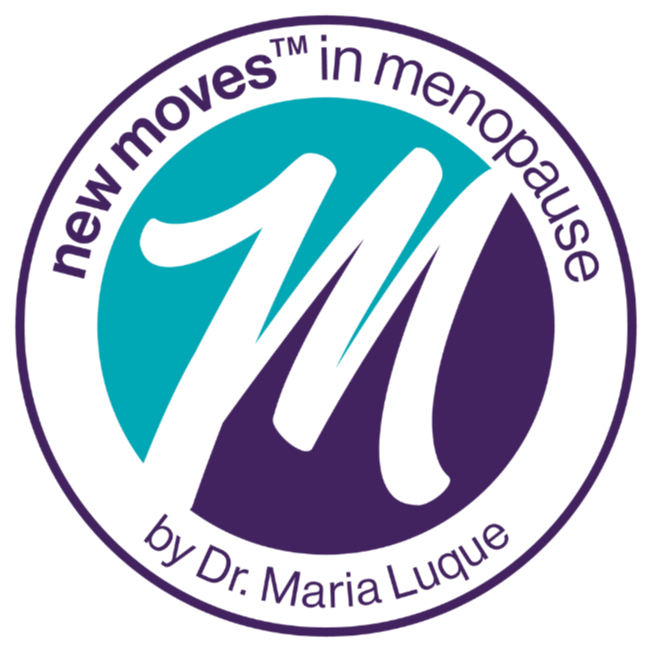Info Overload Is Not a Strategy
Jul 20, 2025
I love learning. I’ve spent decades deep in research, reading journals, getting certifications, and studying the science behind health, movement, and menopause. I’m also the first to say that knowledge can be empowering. But I’ve also learned something else along the way, especially in this age of information overload: Trying to know everything can keep you stuck.
In fact, I’d argue that the constant hunt for knowledge — especially when it comes to our bodies, health, and midlife — can actually delay growth, healing, and self-trust. It sounds counterintuitive, right? We’re told that the more we know, the better we’ll be. We’re the generation of the “the more you know” rainbow star (remember that little shooting rainbow from those public service announcements?). 🌈✨ And yes, knowledge is powerful—but not if it keeps you stuck in permanent research mode.
At some point, you’ve got to stop collecting and start applying.
But here’s what I’ve seen in myself, my clients, and my community:
Sometimes, stockpiling knowledge is a disguise for inaction.
Let’s talk about what that means, why it’s happening, and how to shift out of it.
The New Hoarding: Health Info Edition
We’re living in a time when everyone is an expert, and there’s a new "must" popping up daily:
- Eat this, not that.
- Lift heavy, but not too heavy.
- Do HIIT, but only fasted.
- Balance your hormones, detox your liver, heal your gut, reduce cortisol, optimize sleep, build your glutes, fix your fascia…
And don’t forget to meditate while you’re at it.
It’s not just overwhelming — it’s unsustainable. When you stockpile all of that knowledge without action, it’s like building a home gym, rethinking every single detail, and never stepping foot in it. The equipment is there, but you’re still not moving.
Why? Because all that information becomes too much to sort through. It’s not clarity — it’s chaos.
When More Knowledge Feeds the Inner Critic
There’s another layer to this, and it’s sneaky.
The more you learn, the more you might start feeling like you’re not doing enough.
Ever feel like you know exactly what you should be doing, but still don’t do it? And then feel guilty because "you should know better"? Welcome to the trap of knowledge without action. It can:
- Feed perfectionism
- Fuel procrastination
- Create decision fatigue
- Turn into self-judgment
Suddenly, your wellness journey isn’t about feeling better — it’s about trying to keep up. And that’s not freedom. That’s mental burnout.
You Are Not a Science Experiment
You are a human being living a full life. Your body is not a project. And this phase of life, menopause, midlife, reinvention, is not a test you’re trying to pass.
If you’re waiting until you “know enough” before you act, let me lovingly remind you:
You already know enough to begin.
No, you may not have all the data points. But you do have something far more powerful — your lived experience. You know what foods make you feel bloated. You know what movement energizes you. You know what rest feels like. That’s gold. That’s wisdom.
You don’t need to earn the right to start. You don’t need to collect five more PDFs or follow six more hormone accounts. You need to trust yourself enough to try.
Am I Learning, or Am I Avoiding?
Sometimes learning is just learning. And sometimes, it’s procrastination in disguise.
Before you save another reel or sign up for another masterclass, ask yourself:
“Am I consuming this because it will help me take action today… or because I’m avoiding the discomfort of just starting?”
Because here’s the thing: Doing the thing — imperfectly — is how we grow. You can’t think your way to confidence. You build it through reps, just like muscle.
And much like muscle, confidence grows when challenged, not when stored on a shelf.
Less Knowing. More Doing.
So what’s the alternative? You don’t need to swear off learning altogether (you know I’d never say that). But it’s time to stop collecting and start applying.
Here’s what that might look like:
- Instead of watching five videos on mobility, try one exercise for a week and see how it feels.
- Instead of reading four menopause books, take one idea and build a habit around it for the next month.
- Instead of asking your body to do something new every week, repeat what works until it becomes a rhythm.
This is where real transformation lives — not in what you know, but in what you practice.
🔧 Action Steps: How to Break the Knowledge Hoarding Habit
Here’s how to put this into practice — no degree in biomechanics required.
1. Pick One Focus Area for the Month
What’s one thing you actually want to work on right now? Energy? Strength? Sleep? Mood?
Example: “I want to improve my sleep this month.”
2. Choose One Small Habit to Try
Find one evidence-based, common-sense action and commit to it — even if it seems too small.
Example: “I will go outside for 10 minutes first thing in the morning to reset my circadian rhythm.”
3. Put a Pause on Learning More (Temporarily)
Try a "no new info" week. No new podcasts, no hormone reels, no deep dives. You have enough for now.
Create before you consume. Reflect before you research.
4. Check in Weekly: Is This Working for Me?
Instead of looking for external proof, go inward. What’s changing? How do I feel? What’s sustainable?
Ask yourself: “What’s one thing I learned from my own experience this week?”
5. Celebrate Progress, Not Perfection
Even if the habit didn’t stick perfectly, you’re training your brain to value doing over just knowing. That’s a huge win.
Final Thoughts
You don’t need to graduate from “midlife university” before taking action. Your body doesn’t want more information — it wants attention, consistency, and care. And your confidence isn’t found in knowledge — it’s built through showing up again and again with curiosity.
So let’s stop hoarding. Let’s start experimenting. And let’s remember:
Progress doesn’t come from knowing everything. It comes from doing something.
What are you focusing on this week? I’d love to know. Email me at [email protected]



